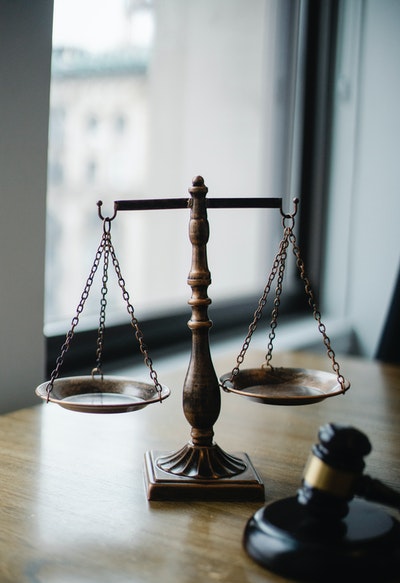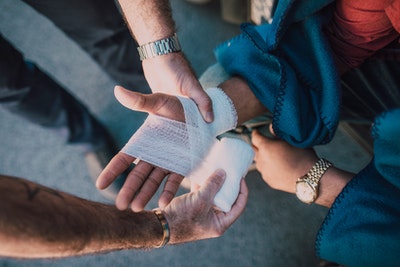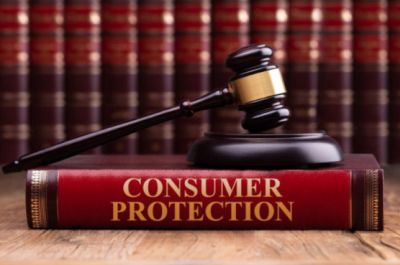What A Personal Injury Lawyer Brooklyn Usually Do in A Personal Injury Case

Whenever your personal injury case is finally settled just as the majority of them are, or it goes to trial, your personal injury lawyer in Brooklyn will be hard at work attempting to secure you the best possible outcome.
After all, most personal injury lawyers are compensated on a contingency fee basis, which means that they do not get paid for their services unless and until you receive compensation from the individual who caused your injuries.
Let’s take a look at some of the most important components of a lawyer’s job in a typical personal injury case.
Investigation and Initial Demand By Your Personal Injury Lawyer Brooklyn
In order to best represent you, your personal injury lawyer in Brooklyn will begin by obtaining as much relevant information regarding your situation. That includes all pertinent facts pertaining to the kind and degree of your injuries, as well as a determination of blame for the underlying accident, such as, but not limited to:
- A copy of your medical bills
- A copy of the history of your medical treatment
- The police reports detailing the incident
- A copy of the surveillance footage (if there are any)
- A copy of the wireless statements regarding the incident
- Photographs of the incident
- Other official government reports that relate to the incident
After that, the personal injury lawyer would most likely make a demand on the insurer of the accountable party (in the event of a vehicle accident, for example, this would be the insurance company for the at-fault driver’s automobile).
Your personal injury lawyer will analyze the settlement offer with you and make recommendations on how to proceed if this initial demand leads to a settlement offer. Very seldom is the first settlement offer the final settlement offer.
A good rule of thumb to remember is that your attorney will not accept a settlement until the entire degree of your injuries along with other losses has been determined which includes any future medical treatment you’ll need as well as how your injuries will impair your capacity to work.
If following settlement discussions, your personal injury lawyer is unable to get a settlement sum that you are prepared to accept, the next step is for your lawyer to file a lawsuit on your behalf.
The Procedure for Filing a Personal Injury Lawsuit
A personal injury lawsuit begins with the submission of a complaint, which is a legal document that outlines your legal arguments, the information that supports your legal reasons, and the remedy you want in exchange for your injuries.
Following the filing of the complaint and service of the complaint on the respondent who is the person that you are suing, the respondent will submit a rebuttal to your complaint with the court system which is known as the “answer”.
Following that, the process of “discovery” begins. This is the phase of the litigation process during which the two parties exchange information that may be used as evidence during the trial. The discovery process for most personal injury lawsuits will comprise of depositions, inquiries for records, and interrogatories, and it might take many months to finish the entire process.
The trial is scheduled following the discovery. As an example, there will be several pre-trial motions that are going to be filed by your counsel so that to ensure that the defendant is prevented from using a piece of evidence during the trial.
It is extremely unusual for a personal injury case to go to the trial phase of the legal process. The possibility of a settlement exists at any time during this procedure, including right up until or even during the trial itself.
Your personal injury lawyer in Brooklyn will handle all parts of the litigation process on your behalf and will keep you informed of the status of your case.
Factors to Consider After Hiring a Legal Professional
The chances are that your attorney will not be able to react to your phone calls and emails promptly. Despite the fact that lawyers are morally obligated to react to their clients within a fair period of time, they often have other issues to work on as well as deposition preparation and court appearances to attend.
Your attorney should never put you in the dark as to what is really happening in your case, particularly if the opposing party presents a settlement offer in your favor. If you haven’t provided your consent, your lawyer will not be able to accept or reject a settlement offer without first consulting you about it.
Keep in mind that anybody other than your attorney or an employee from your attorney’s office should never be discussing your case. In the event that you receive a phone call from an insurance adjuster or others with whom you are unfamiliar, do not speak with them about your case.
You can send them to your attorney if they have genuine questions or concerns regarding your case. Related to this, until your attorney instructs you differently, do not sign any documents pertaining to your case, and do not change physicians unless your lawyer advises you otherwise.
If the respondent or anyone working on his or her behalf attempts to contact you, notify your attorney immediately. As soon as you get more medical bills or other documentation that supports your damages claim, you should notify your attorney and provide them copies of the relevant documentation.
Inform your attorney if you are experiencing financial difficulties as a result of your personal injury. They can point you in the direction of sources of financial assistance and provide guidance about how to deal with creditors.
What To Do After Getting a Legal Recovery
Your lawyer will make plans to collect any money due to you, regardless of whether you win at trial or reach a settlement with the defendant. This may entail contacting the defendant’s insurance company as well as requesting that a check be forwarded to your attorney’s office. Another option would be to file post-trial proceedings in order to recover the judgment.
If your lawsuit is settled, you will very certainly be required to sign a settlement and release the documents. All these documents mean that you agree that your actions against the other party be dismissed with prejudice meaning not suing them pertaining to the accident in exchange for the settlement money.





